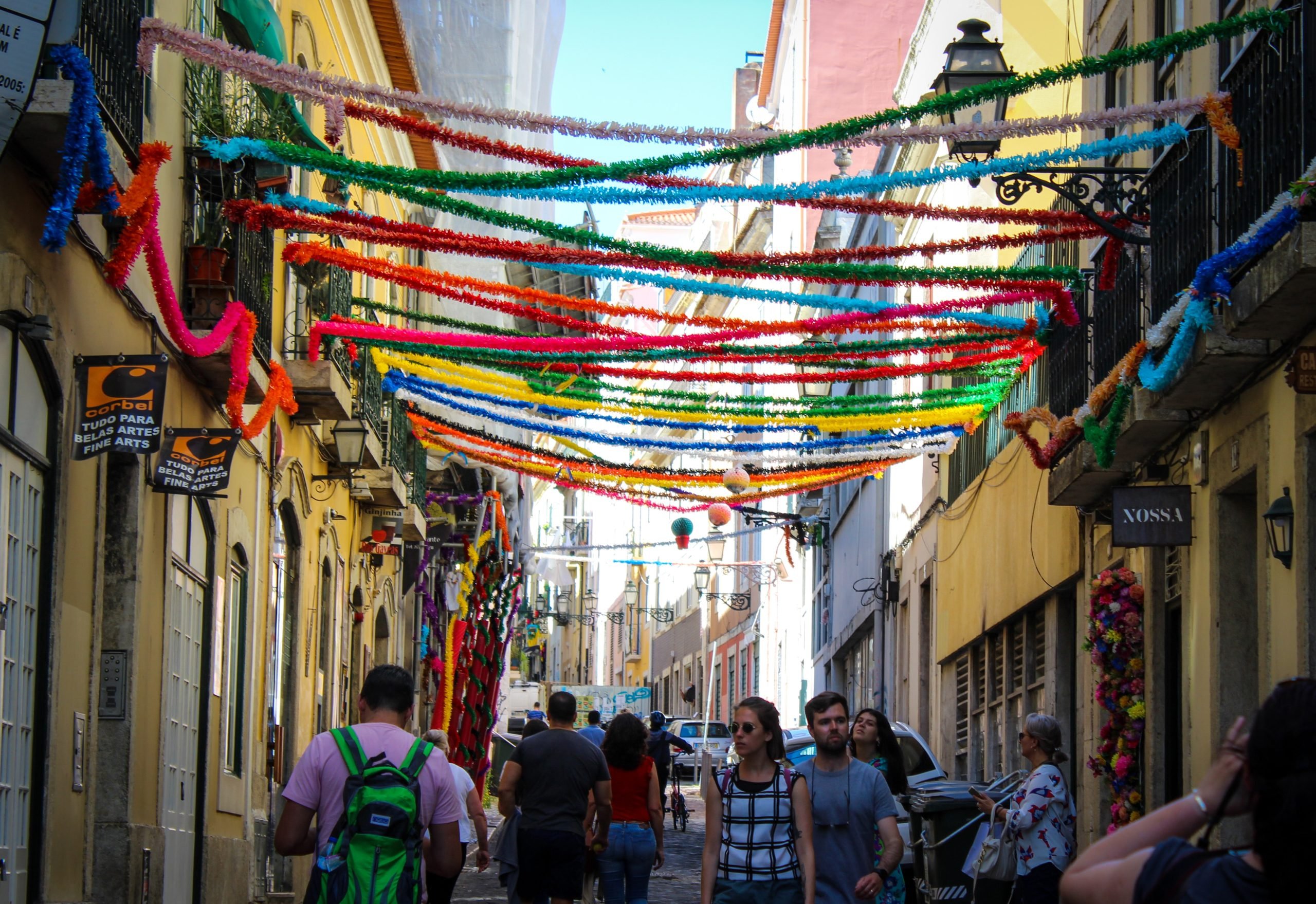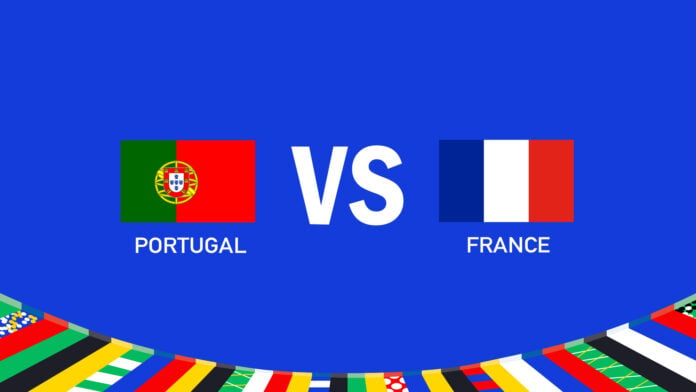Moving to Europe is a dream for many, but choosing the right destination can shape your entire experience. Portugal and France both offer rich culture, strong infrastructure, and access to the European Union, yet they differ dramatically in size, climate, lifestyle, and cost of living. This guide compares the two countries side by side, and we will look at geography and residency options, taxes, healthcare, crime rates, and even the food to help you decide which European destination best fits your personal and professional goals.
Geography and Population
Portugal
Portugal is a modest-sized country by European standards, with a population of about 10.75 million as of 2024. The total land area covers around 92,230 square kilometers, including the Azores and Madeira islands. It sits on the western edge of Europe, bordered by Spain and the Atlantic Ocean. The country’s compact geography and smaller population make it easy to navigate and often less overwhelming than larger European nations.

France
France is much larger both in land and population. About 68.6 million people live across roughly 632,700 square kilometers of land. The country stretches from the English Channel to the Mediterranean and from the Pyrenees to the Alps. Its larger size means greater regional diversity, more cities and job opportunities, and a wider range of environments to choose from.
When comparing the two, Portugal’s smaller scale can mean simpler logistics and easier adjustment, while France’s size offers a wider array of cultural and economic options.

Transportation
Portugal
Portugal has several international airports in Lisbon, Porto, Faro, and Madeira, all of which handle large numbers of travelers. Lisbon Airport alone serves more than 35 million passengers annually. For a country of its size, the transportation network is efficient and well-suited to both tourism and long-term residents.
France
France has one of the most extensive airport networks in Europe, with hundreds of airports and airfields across the country. Paris’s Charles de Gaulle Airport is one of the busiest in the world, which handles over 70 million passengers annually. Regional airports make domestic and international travel highly convenient.
The Bottom Line – France wins in terms of total infrastructure, but Portugal’s airports provide excellent access for its smaller size, and travel within the country is easy and efficient.
Climate
Portugal
Portugal has a Mediterranean climate with warm summers, mild winters, and more than 300 days of sunshine. The southern Algarve region enjoys long, sunny seasons, while coastal cities like Lisbon and Porto remain mild year-round. Inland areas can get warmer in summer, and the islands have comfortable maritime climates.

France
France’s climate varies widely by region. The south has Mediterranean weather, the weather in the west is influenced by the ocean, the east and north have more continental climates, and the Alps bring snowy winters. This variation makes France appealing to those who want to hit the beach in the summers and ski in the winters.
The Bottom Line – Portugal offers a more consistent, sunny climate that appeals to those looking for warmth and mild winters, while France offers variety and contrast.

Visa and Residency Options
Portugal
Portugal offers several appealing visa options for non-EU citizens:
- The D7 Visa allows retirees, remote workers, and individuals with stable passive income to live in Portugal. After five years of residency, holders can apply for permanent residence or citizenship.
- The Golden Visa provides residency through qualifying investment options.
- Student visas allow international students to study in Portugal and potentially transition to other residency types later.
Portugal’s residency routes are known for being accessible and flexible, which makes it easier for retirees and digital nomads to relocate.
France
France also provides visas for work, study, entrepreneurship, and family reunification, but its process is more bureaucratic and requires more documentation. Residency often depends on employment or study, although certain visas exist for investors and professionals. After five years of continuous legal residence, one can typically apply for citizenship.
The Bottom Line – Portugal’s D7 and Golden Visa programs make it more accessible for people with passive income or remote work arrangements. France offers more traditional pathways that favor workers and students.
Years Required to Obtain Citizenship
Portugal
Citizenship is usually available after five years of legal residency, provided the applicant meets language and residency requirements. However, proposed legislation may increase this period to ten years for most non-Portuguese-speaking nationals.
France
France also requires five years of continuous legal residence before applying for citizenship, though this can be shortened for those who study in France or make special contributions.
Verdict – Both countries currently have five-year paths to citizenship, though Portugal’s process could change. France’s rules are stable but require much more documentation.
Tax Rates and Income Tax Comparison
Portugal
Portugal has a progressive income tax system ranging from about 12.5% to 48%. The country previously offered the Non-Habitual Resident (NHR) program, which granted tax advantages to new residents, especially for foreign pensions and income. Although that program has been phased out, there is now an updated version known as NHR 2.0, which continues to provide certain benefits for skilled professionals and foreign investors under revised rules.
In addition to income tax, Portugal requires employees and employers to make social security contributions. Employees contribute approximately 11% of their gross salary, while employers contribute around 23.75%. These payments fund public healthcare, unemployment benefits, pensions, and other social programs. Self-employed individuals generally pay a social contribution rate of 21.4% on declared income.
Despite these contributions, Portugal’s total tax burden remains lower than that of most Western European nations. The system is considered fair and predictable, and the combination of lower living costs and moderate taxes makes Portugal an attractive destination for retirees, digital nomads, and remote workers.

France
France has progressive income tax rates up to about 45%, plus social contributions that significantly increase the overall tax burden. These social charges, known as cotisations sociales, can add roughly 17% to 23% to an individual’s taxable income depending on the type of income and employment.
High earners often face effective rates exceeding 50%. However, these contributions fund one of the most comprehensive social welfare systems in Europe, including universal healthcare, generous parental leave, unemployment protection, and state pensions. While the French system is more expensive to sustain, it provides extensive coverage and a high standard of public services.
Bottom Line – Portugal generally offers a lighter overall tax burden, especially for retirees and remote workers, while France’s higher taxes support a broader network of social benefits. For those looking for lower taxes and simpler administration, Portugal has the upper hand. Those who value comprehensive welfare coverage and social protections may find France’s system worth the higher cost.

Ease of Moving Around the Country
Portugal
Portugal’s compact size makes traveling between cities fast and convenient. The country has an efficient rail and highway system connecting Lisbon, Porto, Coimbra, and the Algarve. Domestic flights are quick, and public transportation in major cities is reliable and affordable.
France
France’s transportation network is world-class. The TGV high-speed train connects cities across the country in hours, and domestic flights and highways are extensive. However, the larger scale means longer travel times and higher costs for interregional trips.
Bottom Line – Portugal’s smaller scale and excellent infrastructure make moving around simple and affordable. France’s system is impressive but more complex and costly due to its size.
Crime Rates
Portugal
Portugal consistently ranks among the safest countries in the world, with low crime rates and minimal violent crime. The country has a strong reputation for public safety, especially in smaller towns and coastal areas. Violent crime is rare, and most reported incidents involve minor thefts or scams in tourist-heavy areas such as Lisbon and Porto. Law enforcement maintains a visible but non-intrusive presence, and locals often describe Portugal as a place where people feel safe walking at night.
France
France, while generally safe and well-policed, experiences higher overall crime rates compared to Portugal. Urban centers like Paris, Marseille, Lyon, and Nice report more frequent incidents of petty theft, pickpocketing, and property crime, particularly around tourist attractions and public transport hubs. Violent crime is uncommon but tends to be concentrated in certain urban districts. The French police maintain a large and well-organized force, and the government actively invests in public safety and surveillance systems. However, demonstrations and strikes (which are common in France’s political culture) can occasionally lead to unrest or property damage in large cities.
Bottom Line – Portugal has a clear advantage in safety and peace of mind, especially for families and retirees. While France remains secure overall, its larger cities experience higher rates of theft and minor crime. This makes Portugal the more tranquil and consistently safe choice for those prioritizing security and a relaxed lifestyle.
Politics
Portugal
Portugal is a parliamentary republic known for political stability, democratic governance, and moderate policies. Debates around immigration and housing have grown, but the country remains open and stable overall.
France
France is a major global power with a strong democratic tradition, but its political environment is more polarized. Protests and strikes are frequent, and debates on immigration and secularism can be intense.
Verdict – Portugal feels calmer and less politically charged, while France’s politics reflect its larger scale and global role.
Passport and Mobility
Portugal
A Portuguese passport provides visa-free or visa-on-arrival access to approximately 186 countries worldwide, which makes it one of the most powerful global passports. Citizens also benefit from full rights to live and work across the European Union. Under Brazilian law for citizens of Portuguese speaking countries, it is also possible to apply for Brazilian citizenship after one year of legal residence in Brazil, subject to meeting the legal criteria.
France
The French passport offers visa-free or visa-on-arrival access to around 187 destinations, outranking Portugal by one country. It also grants full EU citizenship rights and is considered one of the strongest passports in the world.
Bottom Line – Both passports deliver exceptional global mobility and full EU privileges. Portugal’s citizenship route may be easier to access for many expats and still offers near top-tier travel freedom. France offers slightly broader visa-free access and the prestige of its long-standing global reputation. For expats looking for ease of entry and high mobility, Portugal remains a standout choice. For those that prioritize maximum travel freedom combined with a legacy of global influence, France is the more powerful option, especially considering the territories around the world that remain under French sovereignty.
Healthcare
Portugal
Portugal’s public healthcare system (Serviço Nacional de Saúde, or SNS) provides universal coverage and good quality care. Many residents also opt for affordable private health insurance for faster service. Costs are generally low, and healthcare quality in major cities is high.
France
France is widely known for having one of the best healthcare systems in the world. Care is excellent, and the government covers a large portion of medical expenses. However, taxes and social charges that fund this system are high.
Bottom Line – France has the edge in quality and access, but Portugal offers strong healthcare at a much lower cost of living.
Food and Lifestyle
Portugal
Portugal’s cuisine features seafood, fresh produce, and regional specialties like bacalhau, grilled sardines, and pastel de nata. The pace of life is relaxed, and eating out is affordable. The overall lifestyle emphasizes simplicity, community, and enjoyment of daily life.

France
France’s cuisine is world-famous, from Parisian bakeries to regional wines and cheeses. The food culture is deeply ingrained in everyday life. However, living costs, particularly in major cities, can be high.

Bottom Line – France’s culinary tradition is unmatched, but Portugal offers a more affordable and relaxed lifestyle with great food and wine of its own.
| Feature | Portugal | France |
| Population | 10.75 million | 68.6 million |
| Land area | 92,230 sq km | 632,700 sq km |
| Airports | Several major airports (Lisbon, Porto, Faro, Madeira) | Hundreds nationwide including Charles de Gaulle and Orly |
| Climate | Mediterranean, mild winters, long summers | Varied: Mediterranean, oceanic, continental, alpine |
| Visa options | D7, Golden Visa, student visa | Work, student, family, talent visas |
| Years to citizenship | 5 years (may increase to 10) | 5 years |
| Tax rates | 12.5%–48% progressive, plus social contributions | Up to 45% plus social contributions |
| Ease of travel | Easy and compact | Extensive but larger scale |
| Crime rates | Very low | Moderate, higher in cities |
| Language | Portuguese; English widely spoken | French; English moderate |
| Politics | Stable, moderate | Complex, frequent protests |
| Passport | Highly ranked, EU access | Highly ranked, EU access |
| Healthcare | Universal, low cost | Excellent, higher cost |
| Food & lifestyle | Relaxed, affordable | World-class cuisine, higher cost |
Our Winner – Portugal!
After reviewing all categories, Portugal emerges as our No. 1 choice for most people considering a move to Europe. Here’s why:
Portugal’s D7 visa and investment options make it far easier for retirees, digital nomads, and investors to relocate compared to France’s more rigid system. The cost of living, housing, and everyday expenses in Portugal are significantly lower, making it ideal for those seeking quality of life on a reasonable budget.
Portugal’s low crime rate, warm climate, and friendly communities make it one of Europe’s most comfortable countries to live in. While France’s tax system supports excellent public services, Portugal’s lower rates and past expat-friendly programs provide more flexibility for newcomers.A combination of great weather, healthy food, and a welcoming culture makes Portugal a country where many expats not only relocate but thrive.
Final Thoughts
France remains a wonderful country with culture, history, and global influence. It excels in healthcare, cuisine, and diversity, and it offers extraordinary opportunities for those seeking professional careers or city life. However, for most individuals looking for the best balance of climate, cost, safety, and accessibility, Portugal stands out as the better all-around choice for a new life in Europe.
Which would you choose? Let us know in the comments!



What about taxes? I’ve read that France has a special tax treaty with the U.S., while Portugal’s situation is about normal with lots of complications.
Hi Rocky,
We can write in more detail about this, but Portugal also has a double taxation treaty with the United States. For very wealthy individuals, my understanding is that France has slighter higher tax rates than Portugal overall – about 55% vs. 53%.